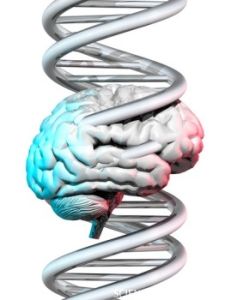Pros & Cons of Gene Therapy
When the concept of gene therapy first arised in the 1960s, it caused public outrage among many. While many viewed gene therapy as a good thing, a step forward in technology, others opposed the idea of altering God's creation and considered it as "playing God". It sparked hope that genetic diseases would eventually all be abolished. However, others believed it would just cause more problems (Citation 232).
Pros: 1) The main benefit is pretty clear: the idea that gene therapy will eventually eliminate all genetic diseases, giving the future generation a much longer and healthier life. 2) Gene therapy will also give the unfortunate individuals born with genetic diseases a chance at having a normal life; a chance that everyone deserves.  (Citation 233) | Cons: 1) As with everything being researched, everything will inevitably need to be tested on an actual human subject before releasing the treatment to the public. Whether it's an adult with a disease who volunteers to be experimented on or if it's a family with a sick baby desperate to find a treatment, many believe that as individuals, we tend to act irrational when faced with a situation such as this, especially one involving a relative or close friend. It is argued that irrationality wins over logic thus giving scientists and researchers an advantage over desperate individuals. 2) Another major concern is the idea that gene therapy will create a "superior race", known as eugenics. Since gene therapy now gives us the ability to manufacture individuals, many fear that creating a superior race will become the priority of researchers rather than their original goal of eliminating hereditary diseases. 3) Religion also contributes to the negative criticism regarding gene therapy. Some consider it sinful to alter DNA because in doing so, you are altering God's creation. However, gene therapy is just a treatment, nothing more. An individual also has the freedom to choose whether they would like to be treated with gene therapy, it is not something forced upon the public. 4) There also remains the question regarding privacy. While genetic screenings are optional, over time insurance companies might make it mandatory to have these genetic screenings. So how can this cause problems? Not only may it cause public humiliation to families with genetic diseases, but insurance companies may also charge more, depending on whether you have a genetic disease that needs treatment. 5) The process itself of gene therapy is also still pretty risky. The process has yet to be perfected. Why does it have to be perfect? Simple. Just a simple mistake in the nucleotide sequence may create a new disease along with the old one receiving therapy. |
Challenges in Gene Therapy
Issues with viral vectors- because viruses are able to directly transfer genetic material to the cells that need it, it has been a popular vector among scientists. However using viruses as vectors come with several problems. Not only are they not completely guaranteed to work, but there's also a possibility that they might trigger a negative response from the immune system. Read about the Jesse Gelsinger case to find out how a young boy died a victim of viral vectors.
The nature of gene therapy is short lived- Although gene therapy appears to have cured a patient for a short period of time, symptoms eventually begin to show up again, forcing the patient to undergo constant treatments. At the moment gene therapy serves only as a treatment and until the DNA is able to permanently remain stable within a cell will it become a cure.
Immune response- As previously mentioned, one of the side-effects of injecting a vector is that it might trigger a negative immune response. However, it may also be recognized by the immune system as a foreign particle, not only defeating the purpose of the injection, but also making it more difficult for gene therapy to be repeated within the patient.
Mulitigene disorders- Treating single mutations with gene therapy is hard enough, but treating multiple mutations within a gene is an even bigger challenge. Because of the combined effects of variations and mutations in several genes, it makes diseases such as Alzheimer's disease very difficult to treat, even with gene therapy.